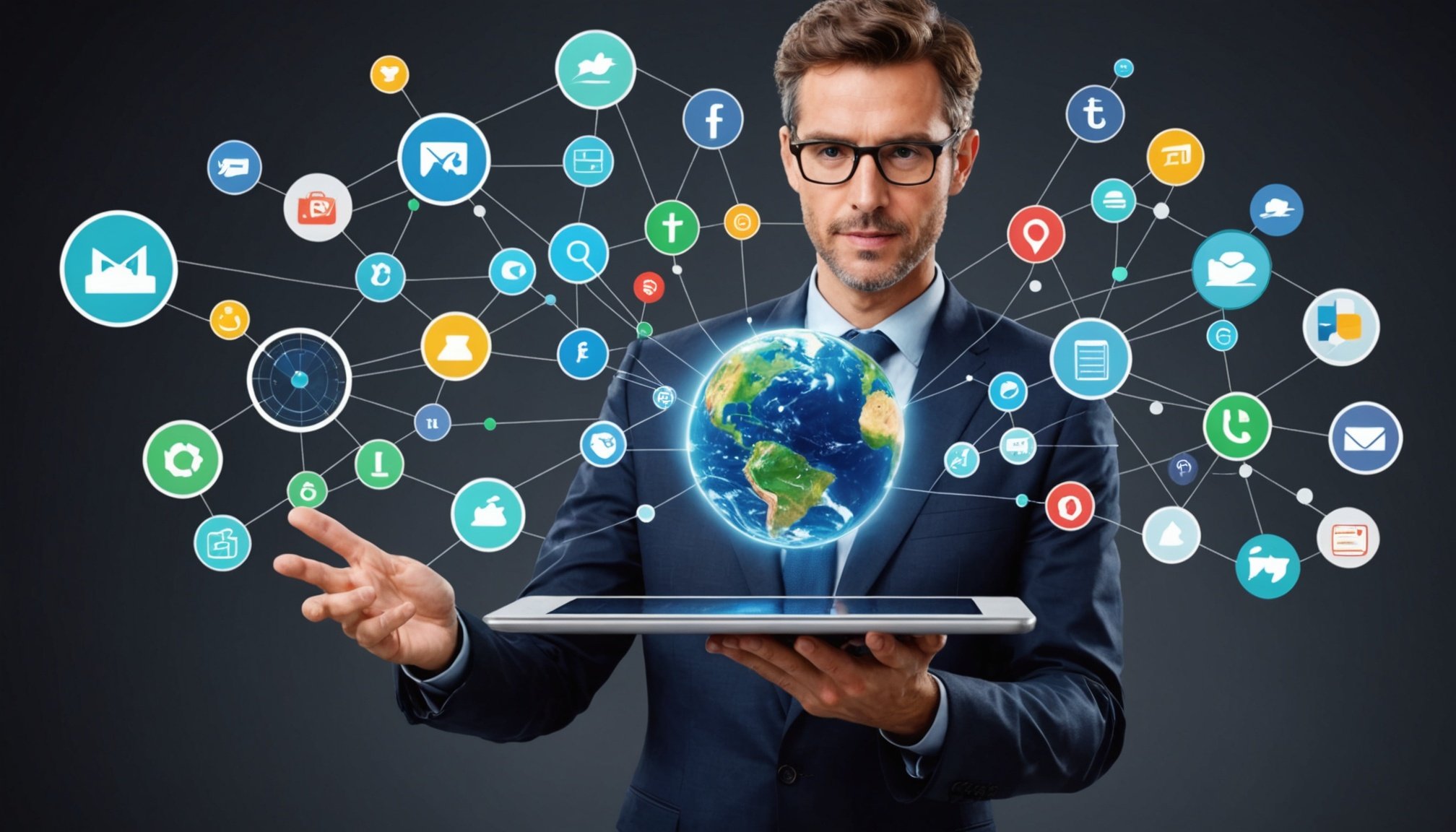Revolutionary Tech Tools You Can’t Miss: Transform Your World!
The Consumer Electronics Show (CES) 2025 has once again set the stage for the most groundbreaking technological innovations of the year. This event, attended by over 141,000 tech enthusiasts, showcased a plethora of revolutionary tools and technologies that are poised to transform how we live, work, and experience the world. Here’s a deep dive into some of the most exciting and impactful tech tools that you simply can’t miss.
The Rise of Artificial Intelligence
Artificial intelligence (AI) was at the forefront of the CES 2025, with significant advancements presented across various sectors such as health, entertainment, and automotive. AI is no longer just a tool; it has become a fundamental technology in industries, enhancing processes from programming to customer experience.
In the same genre : Harnessing Tech Innovations for Long-Term Sustainable Growth
AI in Health Care
One of the standout innovations in health care was the Abbott Lingo glucose monitor. This non-invasive device provides users with proactive health information, enabling them to make informed decisions about their health. Another notable example is the BeamO from Withings, which uses AI to analyze users’ health, replacing traditional tools like thermometers[2].
Decentralized AI
The emergence of decentralized AI was a key trend, addressing concerns about data privacy and decision control. This is achieved through the use of blockchain networks for transparency and reduced bias. For instance, NVIDIA’s vision for digital workers and products like Natura Humana’s HumanPods illustrate more intelligent automation[1].
Also to see : Leveraging Tech Innovations for Thriving in Uncertain Times
AI in Everyday Products
AI is now integrated into various everyday products, making interactions more natural and efficient. The Lenovo Legion Go 2, with its 8.8-inch OLED screen and powerful AMD Ryzen Z2 processor, is a prime example of high-performance devices enriched with AI capabilities. Additionally, Samsung’s TVs now include instant translation features thanks to AI, facilitating access to international content[2].
Robotics and Automation
Robotics and automation were also major highlights at CES 2025, showcasing how human-like precision and automation can transform industries.
Humanoid Robots
The intelligent robot Aria from Realbotix and the contributions from companies like John Deere demonstrated the potential of humanoid robots. These robots are designed to perform tasks with human-like precision, revolutionizing sectors such as manufacturing and health care. However, high costs remain a barrier to widespread adoption[1].
Multifunctional Robots
The SwitchBot K20+ Pro is an example of a multifunctional robot that can unify smart home solutions. These robots can perform a variety of tasks, from home automation to security monitoring, making them indispensable for modern homes[1].
Emerging Technologies: Quantum Computing and More
Beyond AI and robotics, several emerging technologies are set to redefine the future of computing and data processing.
Quantum Computing
Quantum computing, which leverages the principles of quantum mechanics to solve problems beyond the capabilities of classical computers, is gaining traction. This technology can significantly reduce the time required for complex computations, such as training AI models. For instance, NVIDIA’s DGX systems, equipped with A100 and H100 GPUs, offer exceptional computational power for complex AI tasks[2].
Neuromorphic and Photonic Computing
Neuromorphic computing, inspired by the brain’s functioning, and photonic computing, which uses light instead of electricity, are also on the horizon. These technologies promise to revolutionize data processing and communication. For example, photonic computing can enhance data transfer speeds, similar to how fiber optic cables have replaced copper wires in computer networks[3].
Digital Transformation and Sustainability
Digital transformation and sustainability were key themes at CES 2025, highlighting the importance of responsible and sustainable innovation.
Sustainable Technologies
Initiatives to reduce emissions and promote eco-friendly and recyclable products were prominent. The paper battery from Flint and the smart glasses from Halliday are examples of sustainable technologies that combine innovation with environmental responsibility[1].
Smart Home and IoT
The Internet of Things (IoT) continues to evolve, with smart home devices becoming more integrated and intelligent. Google’s Nest devices, using Gemini technology, make interactions with voice assistants more natural and fluid. Belive.ai’s smart cameras optimize stock management in stores, and UEI’s smart hubs centralize control over connected devices, enhancing interoperability in smart homes[2].
Real-Time Data and Big Data Analytics
The ability to process and analyze data in real-time is a game-changer across various industries.
Real-Time Analytics
Technologies like NVIDIA’s DGX systems enable real-time data processing, which is crucial for applications such as autonomous driving, financial modeling, and risk management. These systems can compress training periods for complex AI models from weeks to just a few days[2].
Big Data and Machine Learning
Big data analytics, combined with machine learning, is transforming how businesses operate. For instance, facial recognition technology and augmented reality applications rely heavily on big data and machine learning to provide accurate and personalized experiences. Here’s a detailed list of how big data and machine learning are impacting different sectors:
- Health Care: Personalized medicine and predictive analytics.
- Supply Chain: Real-time inventory management and logistics optimization.
- Business: Customer behavior analysis and targeted marketing.
- Education: Adaptive learning platforms and student performance tracking.
Virtual and Augmented Reality
Virtual and augmented reality (VR/AR) technologies are no longer just for gaming; they are transforming various aspects of our lives.
Immersive Experiences
VR/AR technologies are being used in entertainment, education, and even industrial training. For example, LG’s OLED evo TVs use deep learning algorithms to enhance image quality, providing an exceptional visual experience. In education, VR/AR can create immersive learning environments that make complex concepts more engaging and understandable[2].
Practical Applications
Here are some practical applications of VR/AR:
- Training and Simulation: Industrial and military training.
- Health Care: Surgical training and patient treatment planning.
- Retail: Virtual try-ons and immersive shopping experiences.
Social Media and Digital Interactions
Social media and digital interactions are evolving with the integration of new technologies.
Social Media Evolution
Social media platforms are incorporating AI to enhance user interactions. For instance, AI-driven content creation tools are helping content creators produce dynamic and contextual content more efficiently. Here’s what Mark Cuban, a notable figure at CES 2025, had to say about the impact of AI on social media:
“AI is not just a tool; it’s a fundamental shift in how we interact with technology. It’s making social media more personal, more engaging, and more effective.”
Digital Assistants
Digital assistants, like those from Amazon and Google, are becoming more intuitive with the help of AI. Gemini technology, for example, makes voice interactions more natural and fluid, enhancing the overall user experience[2].
Table: Key Technologies and Their Applications
Here is a comprehensive table summarizing some of the key technologies and their applications:
| Technology | Application | Example Products/Companies |
|---|---|---|
| Artificial Intelligence | Health Care, Entertainment, Automotive | Abbott Lingo, BeamO, Lenovo Legion Go 2 |
| Decentralized AI | Data Privacy, Decision Control | NVIDIA’s HumanPods, Blockchain Networks |
| Quantum Computing | Complex Computations, AI Model Training | NVIDIA DGX Systems |
| Neuromorphic Computing | Brain-Inspired Computing | Neuromorphic Chips |
| Photonic Computing | High-Speed Data Transfer | Fiber Optic Cables |
| Virtual Reality | Immersive Experiences, Training | LG OLED evo TVs, VR Training Platforms |
| Augmented Reality | Enhanced User Experiences, Retail | AR Glasses, Virtual Try-Ons |
| Big Data Analytics | Real-Time Data Processing, Machine Learning | NVIDIA DGX Systems, Facial Recognition Technology |
| Internet of Things | Smart Home Automation, Industrial Automation | Google Nest, Belive.ai’s Smart Cameras |
The CES 2025 has given us a fascinating glimpse into the future of technology. From AI and robotics to quantum computing and VR/AR, these innovations are set to transform our world in profound ways. Here are some practical insights and actionable advice to help you navigate this tech landscape:
- Stay Informed: Keep up with the latest trends and innovations in technology to stay ahead in your business and personal life.
- Invest in AI: AI is not just a buzzword; it’s a game-changer. Investing in AI can enhance your business operations and customer experience.
- Embrace Sustainability: Sustainable technologies are not only good for the environment but also for your business’s long-term success.
- Leverage Big Data: Big data analytics combined with machine learning can provide valuable insights that can drive your business forward.
- Explore Emerging Technologies: Technologies like quantum computing and neuromorphic computing may seem futuristic, but they have real-world applications that can revolutionize your business.
In the words of Jensen Huang, CEO of NVIDIA, “The future is not just about technology; it’s about how technology can empower people to do more, to achieve more, and to live better lives.” As we move forward into this new era of technological advancement, it’s clear that these tools are not just gadgets but transformative experiences that will shape our world for years to come.











